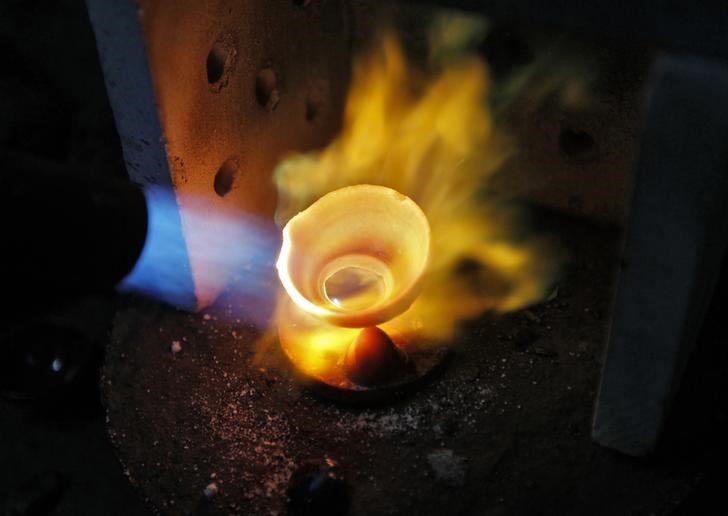By Ambar Warrick
Investing.com — Gold prices rose past key levels on Wednesday, boosted by safe haven buying after Minneapolis Federal Reserve President Neel Kashkari flagged a potential recession this year, with focus also turning to more U.S. economic cues due later in the day.
Kashkari said that rising interest rates and a slowdown in lending after the collapse of several U.S. banks could trigger a potential recession this year. But he also opined that allowing inflation to stay high would likely be worse.
His comments come ahead of inflation data that is likely to have eased further in March. But , which excludes food and energy prices, is expected to remain stubbornly high, which could push up broader price pressures.
The Fed has vowed to keep hiking interest rates to curb high inflation. The of the central bank’s latest meeting, also due on Wednesday, are expected to shed more light on this notion.
jumped 0.5% to $2,013.33 an ounce, while rose 0.5% to $2,028.25 an ounce by 21:46 ET (01:46 GMT). Both instruments are now about $60 away from a 2020 record high.
The prospect of a U.S. recession boosted safe haven demand for gold, which has been on a tear since early-March, as the collapse of several U.S. banks spurred increased expectations that the Fed has limited headroom to keep raising interest rates.
A pause in the Fed’s rate hike cycle bodes well for gold and other non-yielding assets, given that it entails a lower opportunity cost for holding such assets. The retreated further against a basket of currencies on Wednesday, while also fell in overnight trade.
Other precious metals logged strong gains on Wednesday, with up 0.6% at $1,010.80 an ounce, while shot up 2.1% to $25.475 an ounce.
On the other hand, increased fears of a recession weighed on industrial metals, with copper prices trading sideways for the day.
were muted at $4.0297 a pound, also coming under pressure from more signs that an economic rebound in China was running out of steam.
Slowing manufacturing activity across the globe has kept traders largely averse to copper, with this trend expected to continue in the near-term as economic conditions worsen.
Read the full article here




